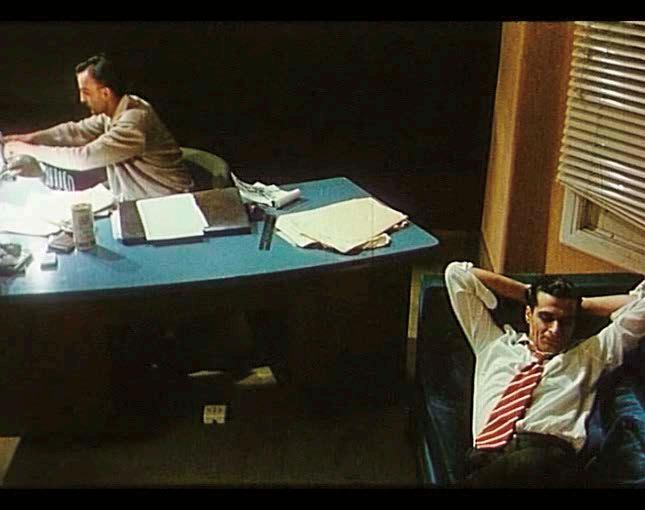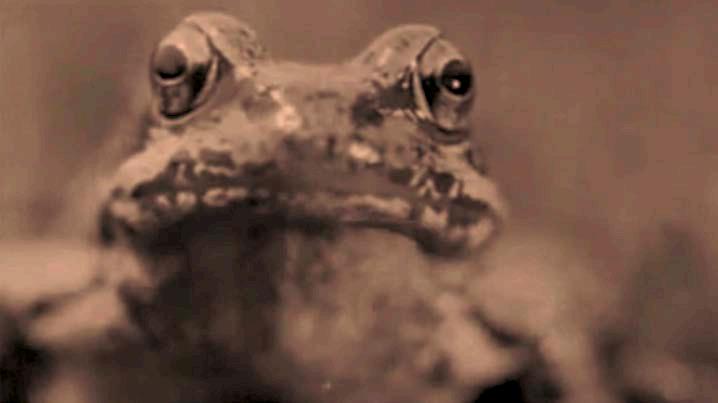
8 minute read
Xurados / Jurys
from PLAY-DOC 2021
by PlayDocFest
XURADO
LONGAMETRAXES / Feature-lenght Films Jury
Advertisement
ARIEL SCHWEITZER
Historiador de cinema, crítico e profesor (París VIII, Universidade de Tel-Aviv), Ariel Schweitzer é autor de Le Cinéma israélien de la modernité (Paris, 1997 / Tel-Aviv, 2003) e coordinador de Il cinema israeliano contemporaneo (Venecia, Marsilio Editori, 2009). Crítico en Cahiers du Cinéma, traduciu ao hebreo Notes sur le cinématographe, de Robert Bresson, e comisariou un gran número de programacións en diferentes eventos de todo o mundo, así como retrospectivas consagradas, entre outros, a Bresson, Jean-Luc Godard, Amos Gitaï, David Perlov, Uri Zohar e a nouvelle vague israelí (a nouvelle sensibilité). Cinema historian, film critic in the French magazine Les Cahiers du cinema and professor (Paris VIII / Tel-Aviv University), Ariel Schweitzer is the author of Le nouveau cinema israélien (Paris, 2013, Tel-Aviv, 2017), Le cinéma israélien de la modernité (Paris 1997 / Tel-Aviv, 2003) and the editor of Il cinema israeliano contemporaneo (Venezia, 2009). He is also the translator to Hebrew of Notes sur le cinématographe by the French director Robert Bresson and the curator of many film’s rétrospectives, both in Israel, Europe and South America, dedicated to Robert Bresson, Jean-Luc Godard, Jacques Rivette, Vittorio De Sica, David Perlov, Amos Gitai and Uri Zohar.
FELIPE LAGE CORO
Felipe Lage Coro dirixe Zeitun Films desde 2009, participando na produción de Todos vós sodes capitáns (Oliver Laxe, 2010), Arraianos (Eloy Enciso, 2012), O quinto evanxeo de Gaspar Hauser (Alberto Gracia, 2013), Costa da Morte (Lois Patiño, 2013), Pozoamargo (Enrique Rivero, 2015), Mimosas (Oliver Laxe, 2016), a curtametraxe Tshweesh (Feyrouz Serhal, 2017), A estrela errante (Alberto Gracia, 2018), Lúa vermella (Lois Patiño, 2020) e Miguel’s War( Eliane Raheb, 2021), todas elas recoñecidas nalgúns dos festivais de cinema máis importantes do mundo como Cannes, Berlín, Locarno, Toronto, Róterdan, Sevilla ou Busan. Os seus proxectos actuais son as curtametraxes Rompente de Eloy Domínguez Serén e Sen Ti de Feyrouz Serhal e as longametraxes I Am Here But You Can’ t See Me de Feyrouz Serhal, Montaña ou morte de Pela del Álamo e Tralovento de Eloy Domínguez Serén. Felipe Lage Coro founded Zeitun Films together with Oliver Laxe in 2009. Todos vós sodes capitáns (You Are All Captains - Oliver Laxe, 2010) was his first production. He then produced or coproduced the feature films Arraianos (Eloy Enciso, 2012), The Fifth Gospel of Kaspar Hauser (Alberto Gracia, 2013), Costa da Morte (Lois Patiño, 2013), Pozoamargo (Enrique Rivero, 2015), Mimosas (Oliver Laxe, 2016), the short film Tshweesh (Feyrouz Serhal, 2017), The Wandering Star (Alberto Gracia, 2018), Red Moon Tide (Lois Patiño, 2020) and Miguel’s War (Eliane Raheb, 2021). His films have been screened and awarded in some of the most important film festivals: Cannes, Berlin, Locarno, Toronto, Rotterdam, BAFICI, Sevilla or Busan among others. The short films Rompente (Eloy Domínguez Serén) and Sen Ti (Feyrouz Serhal), and the feature films I Am Here But You Can’t See Me (Feyrouz Serhal), Montaña ou morte (Pela del Álamo) are his next projects, and Tralovento by Eloy Domínguez Serén.
Programadora de cinema independente. En datas recentes programou ciclos para The Criterion Channel, o BFI (British Film Institute, ou Instituto de Cinema Británico), Light Industry, a sala Metrograph, o Quad Cinema e o Museum of the Moving Image (Museo da Imaxe en Movemento). Actualmente traballa para Screen Slate e é colaboradora habitual na revista de cinema Film Comment Magazine. Desde 2011 ata 2017, foi xefa de programación para a BAM (Brooklyn Academy of Music, ou Academia de Música de Brooklyn), onde organizou amplas retrospectivas dedicadas a cineastas como Chantal Akerman, Luis Buñuel, John Cassavetes, King Hu, Joe Dante, Leslie Thornton e Chris Marker; realizou estudos sobre o cinema do movemento polos dereitos civís, sobre as mulleres e a vinganza no cinema co programa Vengeance is Hers, sobre o cinema independente estadounidense dos anos oitenta, o novo movemento de cinema queer e o cinema-diario. Tamén dirixiu e programou para os festivais Migrating Forms e BAMcinemaFest. Independent film programmer. She has recently programmed series for Criterion Channel, The BFI, Light Industry, Metrograph, The Quad Cinema, and Museum of the Moving Image. She is currently the programmer for Screen Slate and a contributing editor at Film Comment Magazine. From 2011 until 2017, she was the senior programmer at BAM where she organized comprehensive retrospectives of Chantal Akerman, Luis Buñuel, John Cassavetes, King Hu, Joe Dante, Leslie Thornton and Chris Marker; historical surveys on Cinema of the Civil Rights Movement, Women’s Revenge on Film, American Independent Cinema in the 1980s, Black Women’s Cinema Before 1990, Los Angeles Noir, the New Queer Cinema Movement, and the Diary Film; as well as Migrating Forms and the annual BAMcinemaFest.
XURADO
CURTAMETRAXES & GALICIA / Short Films & Galician Jury
MIGUEL CLARA VASCONCELOS
Director de cinema, escritor e profesor na Universidade Nova de Lisboa. Estudou na Escola Internacional de Cinema e Televisión de Cuba e no Instituto do Cinema de Madrid. Cursou estudos de posgrao na Escola Superior de Arquitectura e Belas Artes, na Universidade Europea de Madrid e ten un Máster en Estudos Cinematográficos pola Universidade Sorbona Nova de París. Ademais estudou Performance, Escenografía e Instalación, Filoloxía Clásica e Ciencias Económicas nas universidades de Valencia, Coímbra e Lisboa. As súas películas foron mostradas e recibiron premios en festivais internacionais como Torino FF, IndieLisboa, Doclisboa, o festival Curtas Vila do Conde e o Festival Internacional de Curtametraxes de Capalbio. Escribiu tamén guións, obras de teatro, ensaio e poesía, polos que recibiu recoñecementos como o Premio Beaumarchais-SACD. Filmmaker and a writer. He also teaches screenwriting at the Universidade Nova de Lisboa. He studied at the Escuela Internacional de Cine y TV in Cuba and at the Instituto del Cine de Madrid. He postgraduated at the Escuela Superior de Arquitectura y Bellas Artes at the European University in Madrid and has a master degree in Cinematographic Studies at the Université Sorbonne Nouvelle de Paris. He also studied Performance, Scenography and Installation, Classic and Portuguese Languages and Literature and Economics at the universities of Valencia, Coimbra and Lisbon. His films have been shown and have been awarded at international film festivals such as Torino FF, IndieLisboa, DocLisboa, Festival Curtas de Vila do Conde or Capalbio International Short Film Festival. He also writes cinema scripts, theater plays, essays and poetry. His works have received recognitions like the Beaumarchais-SACD award.
Cineasta e guionista. As súas películas recibiron máis de sesenta premios e foron presentadas en festivais internacionais e museos de todo o mundo, como o Festival de Cinema de Venecia, a Berlinale, Locarno, Toronto, o IFFR, San Sebastián, o Sundance, o Centro Georges Pompidou e o MoMA, entre outros. Tamén traballou como delegado para Latinoamérica no Festival de Cinema de Locarno. A súa primeira longametraxe, Girimunho (2011), tivo a súa estrea mundial no 68º Festival de Cinema de Venecia, onde obtivo o Premio Interfilm. En 2012 o festival de curtametraxes de Vila do Conde dedicoulle unha retrospectiva, como fixo tamén a filmoteca alemá Arsenal en 2014. A súa segunda longametraxe, Querência (2019), producida por Walter Salles, estreouse mundialmente na Berlinale e gañou o Premio á Mellor Película na 20ª edición do Festival de Cinema de Jeonju, en Corea do Sur. Actualmente traballa na súa nova película Se vens por bem podes entrar, se vens por mal põe-cha cavar, producida por Luís Urbano. Filmmaker and scriptwriter. His films have received more than 60 prizes and have been premiered at international film festivals and museums such as Venice Film Festival, Berlinale, Locarno, Toronto, IFFR, San Sebastian, Sundance, Centre Georges Pompidou and MoMA, among others. He has also worked as Latin American Correspondent for the Locarno IFF. Girimunho (2011) his first feature made its world premiere at the 68th Venice Film Festival where it was honored with the Interfilm award. In 2012 Vila do Conde ISFF presented a retrospective of his work, as well as the German Cinemateque Arsenal in 2014. His second feature film Querência (2019), produced by Walter Salles, made its world premiere at Berlinale and won the Best Picture Prize at the 20th Jeonju IFF in South Korea. He is currently working on his new film Se vens por bem podes entrar, se vens por mal põe-te a cavar, produced by Luís Urbano.
ELISA PEREIRA VARELA
Cursou estudos de Realización Audiovisual na Escola de Imaxe e Son de Bemposta, en Ourense, e de Fotografía Artística na tamén ourensá Escola de Arte e Superior de Deseño Antonio Faílde. Desde que finalizou os estudos, xeralmente os seus traballos estiveron relacionados co sector audiovisual e desde 2014 dirixe o proxecto La Plantación. Encuentros y Conocimiento, unha iniciativa privada sen vinculacións nin ataduras de ningún tipo (https://laplantacion.info) onde se ofrece formación en liña e especialmente presencial, a través de talleres e titorías personalizadas, convidando autores de referencia, sobre todo en cinema e fotografía, como Pedro Costa, Antoine D’Agata, Víctor Erice, Txema Salvans, Mercedes Álvarez, José Luis Guerín ou Joan Fontcuberta, entre outros, e onde se relacionan proxectos coa cultura audiovisual e a creatividade máis aló do sistema tradicional de ensino. Took studies in Audiovisual Creation at the School of Image and Sound of Bemposta in Ourense, and in Artistic Photography at the Antonio Faílde School of Art and Higher School of Design, Ourense. Ever since finishing her degrees, her work has generally been linked to the audiovisual industry, and since 2014 she has directed the project La Plantación. Encuentros y Conocimiento, a private initiative without any links or ties whatsoever (https://laplantacion.info) that provides online and especially in-person training through workshops and personalised tutorials, inviting leading authors, particularly in the fields of cinema and photography, such as Pedro Costa, Antoine D’Agata, Víctor Erice, Txema Salvans, Mercedes Álvarez, José Luis Guerín or Joan Fontcuberta, among others, and relating projects to audiovisual culture and creativity beyond the traditional education system.










